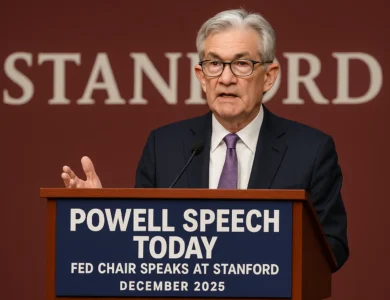
In the rapidly evolving landscape of modern philanthropy, few leaders have demonstrated the transformative vision and unwavering commitment to social justice that Darren Walker embodies. As the President of the Ford Foundation, one of the world’s most influential philanthropic organizations, Walker has redefined what it means to be a visionary leader in the nonprofit sector. His groundbreaking approach to philanthropic impact has challenged traditional funding models and sparked conversations about equity, power, and systemic change that resonate far beyond foundation boardrooms.
Darren Walker’s journey from humble beginnings in rural Louisiana to the pinnacle of global philanthropy represents more than just personal achievement—it symbolizes a fundamental shift in how we understand and practice charitable giving. Under his leadership, the Ford Foundation has embraced bold initiatives that address root causes of inequality rather than merely treating symptoms. This comprehensive examination of Walker’s career, philosophy, and lasting impact reveals why he stands as one of the most influential philanthropic leaders of our time.
Walker’s revolutionary approach has not only transformed the Ford Foundation but has also influenced countless other organizations to reconsider their strategies for creating meaningful social change. His emphasis on community empowerment, systemic reform, and inclusive philanthropy has established new benchmarks for what effective charitable work looks like in the 21st century.
Early Life and Formative Experiences
Roots in Rural Louisiana
Darren Walker’s early life in Ames, Louisiana, profoundly shaped his understanding of inequality and social justice. Growing up in a working-class family, Walker witnessed firsthand the challenges faced by underserved communities. His mother, a single parent working multiple jobs, instilled in him the values of resilience, education, and service to others that would later become hallmarks of his philanthropic leadership.
The experiences of his childhood in the rural South provided Walker with an authentic understanding of poverty, racial discrimination, and limited opportunities that many in philanthropic circles lack. This grassroots perspective has proven invaluable in his approach to community development and social impact initiatives throughout his career.
Educational Foundation and Early Career
Walker’s academic journey took him from the University of Texas at Austin to New York University School of Law, where he developed the analytical skills and legal expertise that would serve him well in his future nonprofit leadership roles. His early career in investment banking at UBS provided him with crucial financial acumen and an understanding of capital markets that would later inform his innovative approaches to philanthropic funding.
This unique combination of lived experience with poverty, legal training, and financial expertise positioned Walker to bridge the gap between traditional charitable giving and the more strategic, outcomes-focused philanthropy that has become his signature approach.
Rise to Philanthropic Prominence
Building Expertise Across Sectors
Before joining the Ford Foundation, Darren Walker built an impressive portfolio of experience across multiple sectors. His work with organizations like Abyssinian Development Corporation in Harlem demonstrated his commitment to community empowerment and grassroots organizing. These early roles provided him with practical experience in community development finance and affordable housing, sectors where he could see the direct impact of strategic investment on people’s lives.
Walker’s tenure at the Rockefeller Foundation further honed his skills in global philanthropy and social innovation. As Vice President for Foundation Initiatives, he oversaw programs that addressed education, economic opportunity, and resilience—experiences that would later inform his comprehensive approach to systemic change at the Ford Foundation.
Vision for Transformative Leadership
Throughout his career progression, Walker consistently demonstrated a vision for philanthropy that went beyond traditional charity models. His approach emphasized capacity building, policy advocacy, and movement building—strategies designed to create lasting social change rather than temporary relief. This philosophy would become central to his later work as Ford Foundation President.
Leadership at the Ford Foundation
Transforming Institutional Culture
Since becoming President of the Ford Foundation in 2013, Darren Walker has fundamentally transformed the institution’s approach to philanthropic impact. His leadership has been characterized by a willingness to challenge conventional wisdom and take calculated risks in pursuit of greater social justice. Under his guidance, the Foundation has embraced more transparent, collaborative, and community-centered approaches to grantmaking.
Walker’s emphasis on participatory philanthropy has meant involving community members and beneficiaries in decision-making processes that traditionally excluded them. This approach has not only improved program outcomes but has also helped build trust and legitimacy for the Foundation’s work in communities around the world.
Innovation in Funding Models
One of Walker’s most significant contributions to modern philanthropy has been his willingness to experiment with innovative funding mechanisms. The Ford Foundation’s decision to issue $1 billion in social bonds represents a groundbreaking approach to philanthropic funding that has inspired other foundations to consider similar strategies.
This bold move demonstrated Walker’s understanding that addressing complex social problems requires financial instruments that can provide sustained, long-term support rather than traditional short-term grants. The success of this initiative has positioned the Ford Foundation as a leader in impact investing and social finance.
Focus on Inequality and Justice
Under Walker’s leadership, the Ford Foundation has maintained an unwavering focus on addressing inequality in all its forms. The Foundation’s BUILD program (Building Institutions and Networks) exemplifies this commitment by providing multi-year, flexible funding to organizations working on social justice issues. This approach recognizes that meaningful change requires sustained investment in movement building and institutional capacity.
Walker’s emphasis on racial equity, economic justice, and democratic participation has influenced funding priorities across all of the Foundation’s program areas. His leadership has helped establish these themes as central to contemporary discussions about effective philanthropy.
Innovative Approaches to Social Change
Community-Centered Strategies
Darren Walker’s approach to philanthropic impact consistently emphasizes the importance of community leadership and grassroots engagement. Rather than imposing solutions from above, Walker advocates for strategies that recognize and build upon the existing strengths and knowledge within communities. This approach has led to more sustainable outcomes and stronger community ownership of change initiatives.
The Ford Foundation’s investment in community organizing and civic engagement reflects Walker’s belief that lasting social change must come from within communities rather than being imposed by external actors. This philosophy has guided the Foundation’s support for organizations working on issues ranging from criminal justice reform to economic opportunity.
Systems Thinking and Root Cause Analysis
Walker’s background in finance and law has informed his systematic approach to addressing social problems. Rather than focusing solely on symptoms, he advocates for interventions that address root causes of inequality and injustice. This approach requires longer-term thinking and more complex strategies, but it ultimately leads to more sustainable social impact.
The Ford Foundation’s work on structural racism and economic inequality exemplifies this systems-thinking approach. By supporting research, policy advocacy, and movement building simultaneously, the Foundation under Walker’s leadership has been able to address multiple dimensions of complex problems.
Global Impact and Recognition
International Influence
Darren Walker’s influence extends far beyond the United States, with the Ford Foundation supporting important work in dozens of countries around the world. His leadership has helped establish new standards for international philanthropy that emphasize local leadership, cultural sensitivity, and sustainable development.
Walker’s approach to global philanthropy recognizes that solutions to social problems must be developed and implemented by people who understand local contexts and cultures. This philosophy has led to more effective programs and stronger relationships between the Ford Foundation and its international partners.
Awards and Recognition
Walker’s contributions to philanthropy and social justice have been recognized through numerous awards and honors. His inclusion in lists of influential leaders and his frequent speaking engagements at major conferences demonstrate the respect he has earned from peers across sectors. These accolades reflect not just personal achievement but also recognition of the innovative approaches he has brought to philanthropic leadership.
Challenges and Criticisms
Navigating Complex Terrain
Like all leaders working on complex social issues, Darren Walker has faced criticism and challenges throughout his tenure. Some critics argue that foundations like the Ford Foundation wield too much influence over social movements and policy decisions. Walker has addressed these concerns by advocating for greater transparency and accountability in philanthropy.
His willingness to engage with critics and acknowledge the limitations of philanthropic approaches has helped establish him as a thoughtful and reflective leader. This openness to dialogue and continuous improvement has strengthened both his personal credibility and the Ford Foundation’s reputation.
Balancing Innovation and Responsibility
Walker’s innovative approaches sometimes generate controversy within traditional philanthropic circles. His advocacy for social bonds, participatory grantmaking, and movement funding has challenged established practices and required careful navigation of competing interests and perspectives.
Future Vision and Legacy
Continuing Impact
As Darren Walker continues his leadership at the Ford Foundation, his vision for transformative philanthropy continues to evolve and expand. His emphasis on systems change, community empowerment, and social justice has established frameworks that will influence philanthropic practice for generations to come.
Walker’s mentorship of emerging leaders and his advocacy for diversifying philanthropic leadership ensure that his impact will extend beyond his own tenure. His commitment to building more inclusive and effective institutions represents a lasting contribution to the field.
Inspiring Next-Generation Leaders
Through his writing, speaking, and mentoring, Walker has inspired a new generation of philanthropic leaders to think more boldly about their potential for creating social change. His example demonstrates that effective leadership in philanthropy requires not just financial resources but also vision, courage, and a deep commitment to justice.
Conclusion
Darren Walker’s transformative leadership at the Ford Foundation has redefined modern philanthropy and established new standards for social impact. His journey from rural Louisiana to global philanthropic leadership demonstrates the power of vision, persistence, and an unwavering commitment to social justice. Through innovative funding approaches, community-centered strategies, and systems thinking, Walker has shown that philanthropy can be a powerful force for addressing root causes of inequality and injustice.
His legacy extends beyond the specific programs and initiatives he has supported to encompass a fundamental shift in how we think about the role of foundations in society. By advocating for more transparent, accountable, and participatory approaches to philanthropic giving, Walker has helped create a more effective and legitimate field of practice.
As challenges facing our communities become increasingly complex, the leadership model that Darren Walker represents—combining analytical rigor with deep empathy, financial expertise with grassroots understanding, and global perspective with local engagement—offers a blueprint for creating meaningful and lasting social change. His work continues to inspire and challenge others to think more boldly about their potential to contribute to a more just and equitable world.
Read More: Sheinelle Jones Inspiring Stories from the TODAY Show






